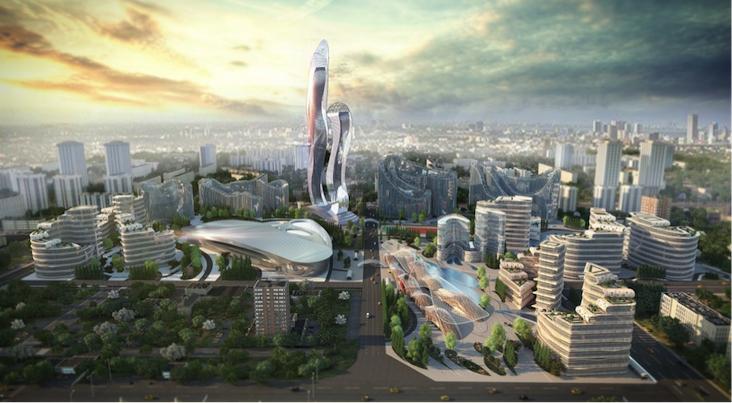Africa-Press – Mauritius. Africa’s future is urban. Rising population growth and rapid urbanisation are both contributing to the rise of megacities on the continent.
It is therefore no surprise that African investors and policymakers are gradually recognising the economic power of cities and ramping up investments in new city developments.
As these projects emerge, here are three key trends that will shape the future of Africa’s new cities. Total investment in African new cities is almost $115bn, with the majority of investment coming from the private sector.
Over 75% of new cities across Africa are privately funded. Private investors are acutely aware of the challenges facing cities such as poor infrastructure, overcrowding, and noise and air pollution.
By building new cities from scratch, private developers can ensure the residents of their cities have access to good infrastructure, low pollution, and a safe environment.
By catering to the emerging African middle class, new cities can serve as foundational blocks for economic development For private banks, investment firms and multinational corporations, new city developments are a lucrative investment.
Many of these cities are expected to host at least 200,000 residents. These new private cities aren’t just residential, they often include industrial parks and commercial centres.
By catering to the emerging African middle class, they can serve as foundational blocks for economic development. Poor governance and corruption have stunted the growth of many African cities and made it difficult to attract needed foreign and domestic investment.
But special economic zones (SEZs) are a promising solution. Across the globe, countries (most notably, China) have created SEZs to generate wealth, create jobs and attract investments, serving as significant tools for economic development.
Special Economic Zones can serve as significant tools for economic development Because SEZs typically operate under higher transparency rules and effective governing systems, new city developers are looking to locate their cities in SEZs.
SEZs often include free-trade zones, industrial parks, high-tech parks, tourist and recreational zones, and business service parks. These cities can offer businesses cost-efficient trade facilities — and serve as gateways to international markets.
Colleges and universities are economic engines. Not only do higher-education institutions serve as research and technology centres, they also produce a skilled and educated workforce that can grow businesses and develop industry clusters.
The United States, with its numerous college towns, has demonstrated how these cities support innovation and enhance regional economic development.
For example, Boston, nicknamed America’s college capital, is home to over 346,000 students and 29 higher learning institutions, including prestigious universities like Harvard and MIT.
Over the years, Boston has cemented its position as a global hub for business, medicine, and research — and continues to support hundreds of thousands of jobs in the area.
African countries need the enhanced productivity that cities bring to fuel economic growth African countries are now learning from America’s success and are developing cities with higher-learning institutions in mind.
These two examples of cities transitioning into university towns provide a model for other African countries to replicate. As these trends continue, they will support the development of Africa’s higher-education landscape, unleashing human capital in the process.
African countries need the enhanced productivity that cities bring to fuel economic growth. Translating Africa’s new cities into economic prosperity will require collaboration between African investors and policymakers to enable these cities to thrive.
Additional investments in new city projects paired with well thought-out urban policies are sure to play a fundamental role in fostering innovation, job creation and wealth generation across the continent.
For More News And Analysis About Mauritius Follow Africa-Press







